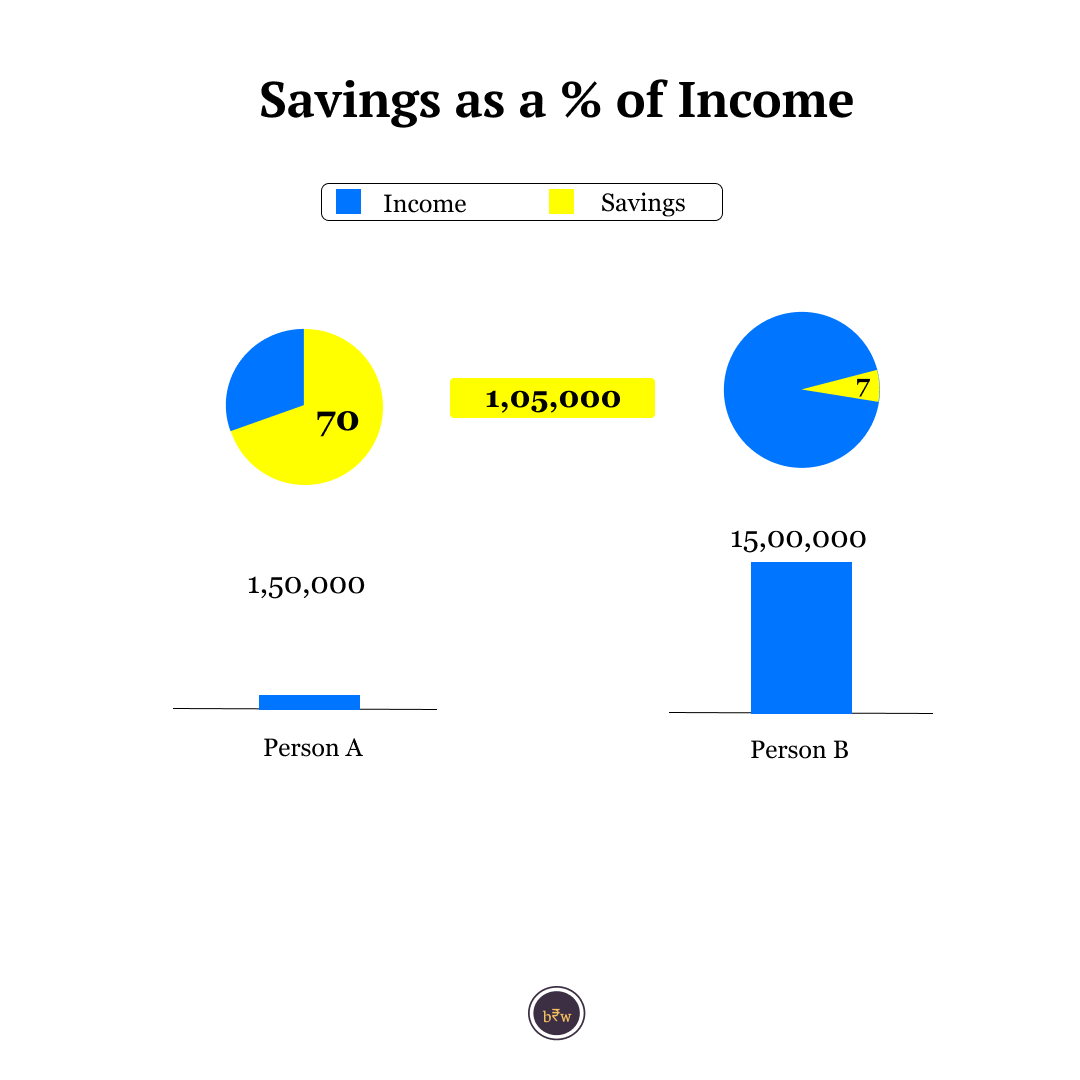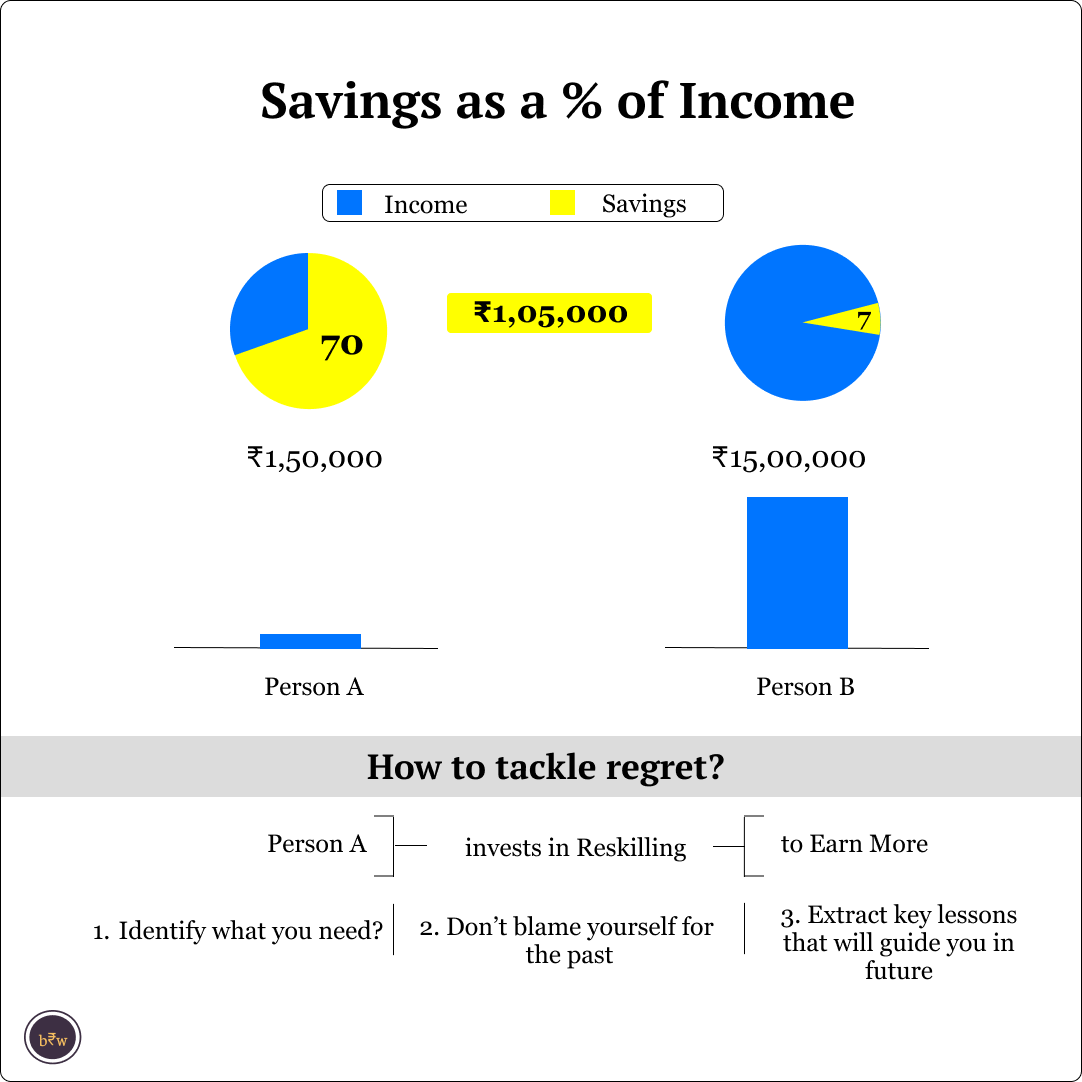Put your savings to good use
Invest Smart
is the most common advice you get when you start earning.
You also hear words like, "If only I'd done the work..."
Many of us live in regret for not taking the job or switching a career, or doing something like spending too much, not saving too much, and so on.
In his book, The Power of Regrets, Daniel Pink talks about these regrets as Foundation regrets. And he uses the fable "The Ant and the Grasshopper" where he says that the foundation regrets arise from our failure to take action or not making the right choice especially when we choose an easier path just as the grasshopper did over a long-winded path that will serve us better in the long run.
One of the examples of regrets people have:
Lack of financial foundation prevented a 46-year old from "having the space to live life."
To give you an example, take a look at the visual below:

In this case Person A earns ₹1,50,000 while Person B earns ₹15,00,000 and person A has done everything she could to curtail her expenses and ends up saving 70% of her income that comes to ₹1,05,000.
If Person B also decides to save the same amount, it would only be about 7% of her income. Even though Person A is saving a lot of money as a % if her earnings, she could end up spending that on meeting her goals and feel that she needs to save more.
While the Person B who earns ₹15,00,000 will have a little more room to spend on things she needs without a lot of regret.
Earn more is not what you hear often. I did not definitely.
Here is why it matters. Irrespective of the stage in your career, how much you earn impacts your savings and your ability to secure a stable future.
So, what do you do now?
Person A puts in some extra effort and begins investing in reskilling herself, for example, going for a higher education in a subject of her choice, taking a short course that will help her practice and learn better, choosing to switch her career and doing everything it takes to grow in her career.
In the initial years of your career, or when you are starting out after a sabbatical or if you are stuck in a stagnant job, the first step is to identify that you are stuck, the next is to not blame yourself for your inaction, and the third is to examine the regret from a lens of extracting key lessons from it that can guide you in future.

This is a true story for many of us. We focus on earning more return on our investment when probably we should have focused on earning more by investing in ourselves.


